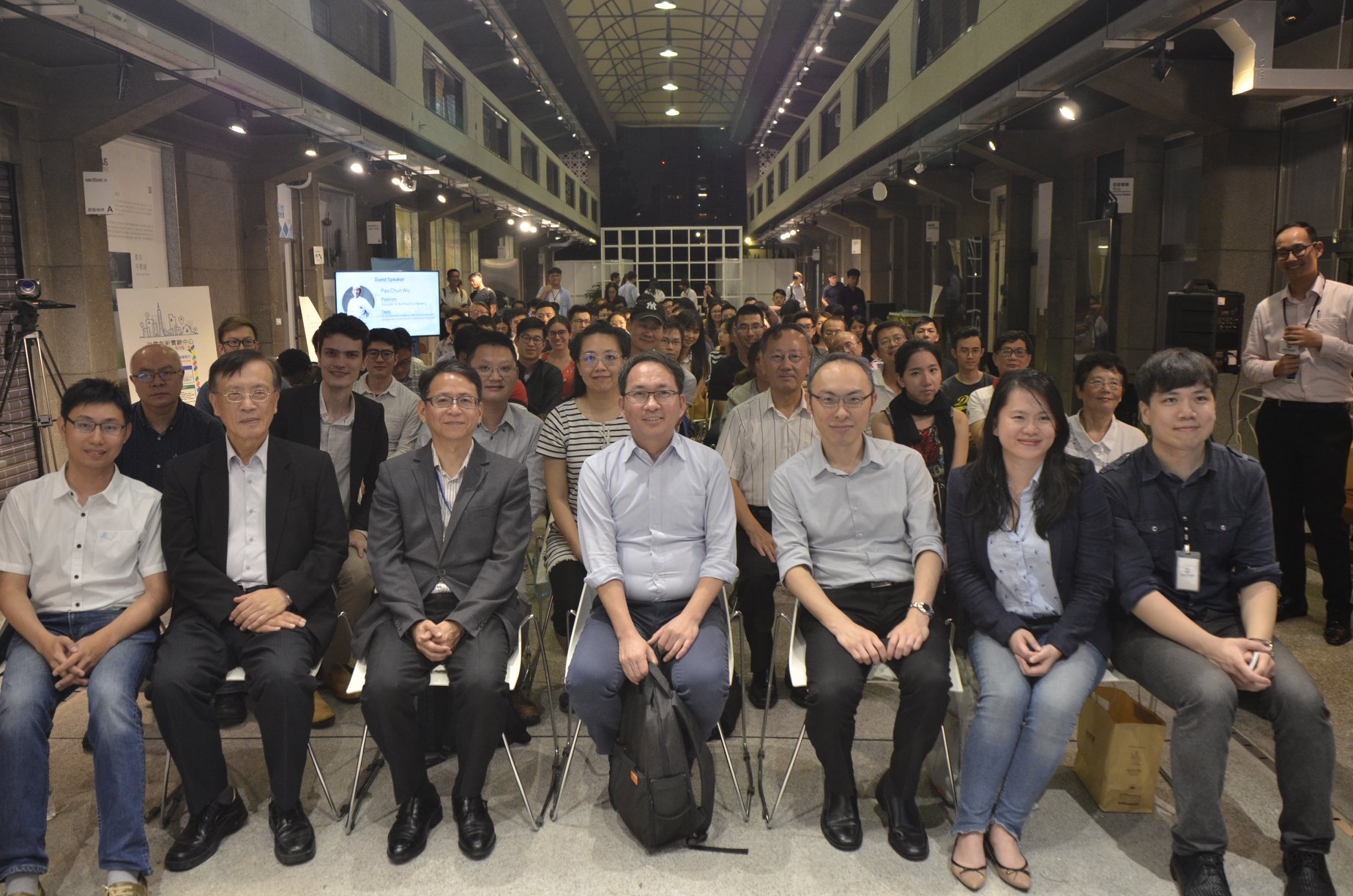Mason Lin, Project Manager at STARTBOARD
To enable entrepreneurs in Taipei to explore the Southeast Asian market, “Subsidies and Incentives for Taipei Industry Project” organized the “ Taipei Entrepreneur Exchange Conference – All the way to the south and the key to success,” where they had gathered entrepreneurs from all walks of life to share their first-hand experiences and insights into the Southeast Asian market. The event had a good start through the coordination between Subsidies and Incentives for Taipei Industry Project and Social Innovation Lab, where current entrepreneurial resources integrated by the government and the private sector are highlighted. The grand opening was followed by” The Introduction of The Southeast Asian Market,” launched by Uniform Lin, the COO at STARTBOARD, “Market Development In Singaporean Market,” launched by Xu Bozhen, the CEO at Rooit and “ Must-know Resources for Cross-border E-commerce Industry,” launched by Tsai Songda, the deputy secretary general at Importers and Exporters Association of Taipei. Lastly, the event would be wrapped up by Taiwan Tech Arena (TTA) with international match-making and funding as well as network resources provided.
【Entrepreneurial Resources from The Government and Private Sectors】

(Jiang Yijun , PM at Subsidies and Incentives for Taipei Industry Project)

(Chen Yiwen, Assistant Manager at Taiwan Startup Hub)
Taiwan Startup Hub also made an introduction about their services with an eye to assisting entrepreneurs to utilize startup resources in an efficient manner. Sticking to the notion of “a hub,” they have been compiling resources from the central and local governments as well as private accelerators. Aside from that, with the use of virtual integration, “ International Entrepreneur Initiative Taiwan” was established so as to play as a liaison between entrepreneurs and both government and private sectors. In this manner, the construction of a holistic startup ecosystem can be facilitated.
【Advice for Expanding Your Businesses to ASEAN Countries】

(Uniform Lin, COO at STARTBOARD)
Lin Zhifu, the COO at STARTBOARD, shared the practical experience of the ASEAN market especially for those ambitious souls who aspire to set foot in the ASEAN market. His advice are as follows — First thing first, the Southeast Asian market should be considered separately. Many of us may deem ASEAN as a whole market while the culture, environment, religion, and market are diverse to do so. Secondly, without wholehearted preparation, you wouldn’t want to bounge into a new market. Given that the equity agreements often require partners of local nationality to hold up to 49 to 51% of the shares, each enterprise shall think twice. The point is to find a local partner, especially a trustworthy one to cooperate. Last but not least, we need to verify information ruthlessly. Due to its environment and languages, startup information in those countries is not as transparent as Tawian’s. Before any cooperation plan comes into play, due diligence is strongly recommended to manage potential risks.
Ever since its establishment, STARTBOARD has kept in contact with international talents from ASEAN countries, so as to accumulate the human resources from international talents. In this way, when global talents join in a Taiwan company or startup, they showcase the bonus to connect with ASEAN market and partners and also provide accurate information as well as experiences to live up to the demand of “southbound.”
【New Southbound Policy – Plan ahead and don’t make it complicated】

(Xu Bozhen, CEO at Rooit)
Rooit is committed to developing mobile applications and dating systems and was selected to play a part in TechStars. Their mission is to find everyone a partner who can confide to. Owing to this totally different core value, Rooit provides anonymous chatroom and interactive game for users to cultivate tacit understanding and communication. Mr. Xu also shared his insights into the Singaporean market based on their experiences. The following are some focal points that determine whether your expanding would go smoothly into ASEAN market.
To begin with, the pivot is market research and estimation. The strategies should either depend on population, geographical location or on the questionnaire. Secondly, when the targeted market has limited resources, then we shall narrow down the range.
Lastly, Mr. Xu mentioned the significance of “speed.” More often then not, startups struggle to maintain daily operation so adaptability to the latest trends and the development with efficiency count. Members of a startup need to adapt their attitudes so as to get along well with different markets and politics as well as culture.
【Resources for Cross-border E-commerce】

(Tsai Songda, Deputy Secretary General at Importers and Exporters Association of Taipei)
Tsai Songda, Deputy Secretary General at Importers and Exporters Association of Taipei, led the key point to the cross-border e-commerce industry. He mentioned that many entrepreneurs started to do e-commerce things more than a decade ago, setting up company websites, and activating shopping carts and so on. Nonetheless, “e-commerce is not just about putting goods on the website. Search engine optimization, diversion, and freight services are all full of learning points.” Importers and Exporters Association of Taipei is in charge of assisting entrepreneurs to commercialize the e-commerce process and expand business overseas. Currently, the guild is promoting the 17cross e-commerce and TCEI Taiwan incubation so as to provide information and communication platform for entrepreneurs in Taipei.
【International Capital Match】
Taiwan Tech Arena (TTA) and Taiwan Innovation and Entrepreneur Center (TIEC) shared several resources with entrepreneurs, including investment, mentor, accelerator, and technology, etc and they also nurture startup teams to go on to the stage of the U.S. Capital will be introduced through the International Capital Matching Association. It is expected to open in mid-September and till the end of October. They will also conduct training on presentation and business plan drafting with a capital match launched in the middle of November, where 20 investors from ten different fields will provide opportunities for entrepreneurs to enter into the international arena.
The event had come to a perfect ending. Aside from providing subsidies, Subsidies, and Incentives for Taipei Industry Project also offers entrepreneurs a chance to exchange insights, accelerating the development of the startup ecosystem. Startup@Taipei also invited enterprise that gained the funding to participate in the event – hopefully via the event, urgent needs for localizing in overseas markets can be met.
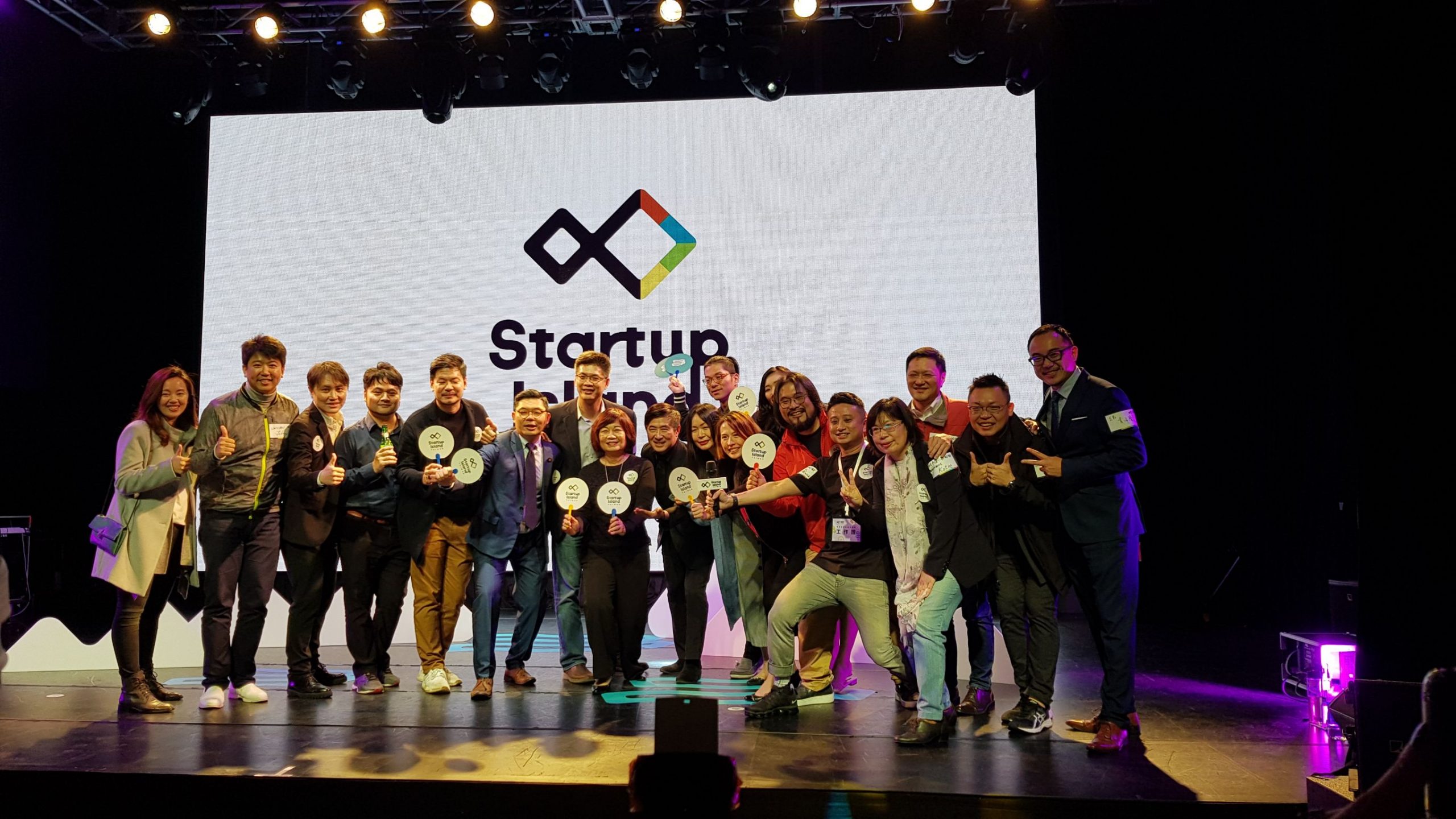





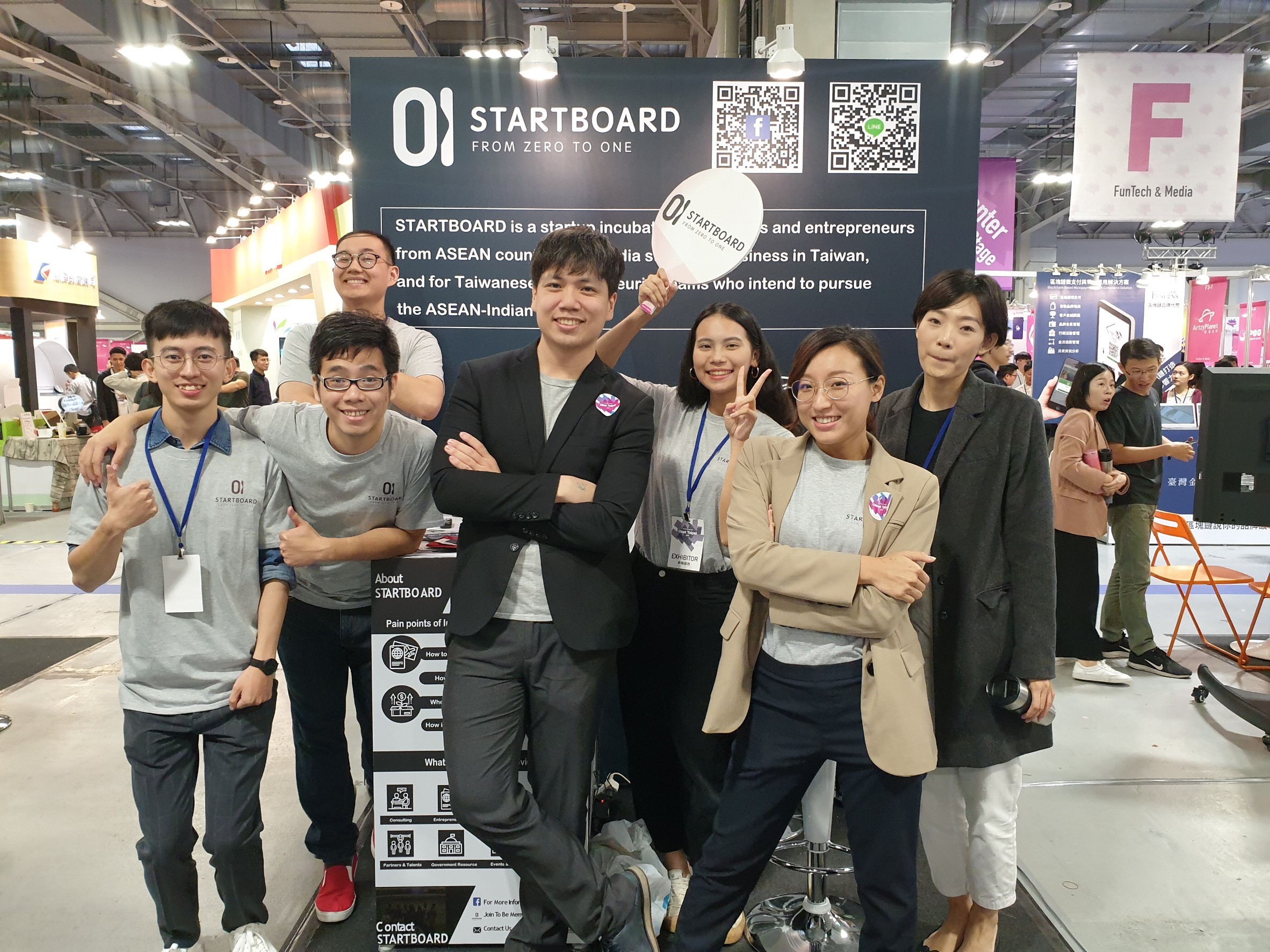
 MUJUN, a 3D martial arts training App found by the Hong Kong company, uses motion capture and 3D scanning technology to record and preserve the masters’ action, creating a 3D video for martial artists. The users could freely adjust the video perspective and control the video speed, which resolves the problem of 2D video blind spot to imitate and follow the movement more precisely. MUJUN shares that not only Chinese love martial art, but also other Asia, American and European countries are full of interests in this sport. In the future, MUJUN desires to expend their business into ASEAN for not only promoting Chinese martial arts but also recording unique martial arts in Southeast Asian countries, for example, “Silat” from Malaysia, “Kalarippayattu” from India. MUJUN hopes to use technology to promote traditional martial art to the world.
MUJUN, a 3D martial arts training App found by the Hong Kong company, uses motion capture and 3D scanning technology to record and preserve the masters’ action, creating a 3D video for martial artists. The users could freely adjust the video perspective and control the video speed, which resolves the problem of 2D video blind spot to imitate and follow the movement more precisely. MUJUN shares that not only Chinese love martial art, but also other Asia, American and European countries are full of interests in this sport. In the future, MUJUN desires to expend their business into ASEAN for not only promoting Chinese martial arts but also recording unique martial arts in Southeast Asian countries, for example, “Silat” from Malaysia, “Kalarippayattu” from India. MUJUN hopes to use technology to promote traditional martial art to the world. A learning platform for foreign language tutors and Taiwanese families, TUTEEMI, was found by a Guatemalan and Taiwanese teacher. They found out that the demand for foreign language tutors is increasing; however, most of the foreign teachers are not familiar with Chinese, tutor-seeking websites and other resources. TUTEEMI resolves the language and culture problem to build a safe and reliable platform for foreign tutors and locals. TUTEEMI also provides customized lessons for tutors to meet each student’s specific needs. The language tutor service includes English, French, Spanish and Portuguese. Now, they are eagerly looking for Southeast Asian language teachers to solve the problem of insufficient language talents for the Taiwanese government and enterprises to the Southeast Asian market. TUTEEMI has been one of STARTBOARD members. After numerous meetings, they’ve built their official website and a working prototype. TUTEEMI also won the third prize in Dragons’ Chamber 6 minutes pitch competition.
A learning platform for foreign language tutors and Taiwanese families, TUTEEMI, was found by a Guatemalan and Taiwanese teacher. They found out that the demand for foreign language tutors is increasing; however, most of the foreign teachers are not familiar with Chinese, tutor-seeking websites and other resources. TUTEEMI resolves the language and culture problem to build a safe and reliable platform for foreign tutors and locals. TUTEEMI also provides customized lessons for tutors to meet each student’s specific needs. The language tutor service includes English, French, Spanish and Portuguese. Now, they are eagerly looking for Southeast Asian language teachers to solve the problem of insufficient language talents for the Taiwanese government and enterprises to the Southeast Asian market. TUTEEMI has been one of STARTBOARD members. After numerous meetings, they’ve built their official website and a working prototype. TUTEEMI also won the third prize in Dragons’ Chamber 6 minutes pitch competition. Bountie is a startup from Singapore. Because the e-sports market has already become an international event and South Asia’s rapid growth in internet penetration rate, Southeast Asia has become a key development area for the e-sports market.
Bountie is a startup from Singapore. Because the e-sports market has already become an international event and South Asia’s rapid growth in internet penetration rate, Southeast Asia has become a key development area for the e-sports market. Golfdigg, a startup founded in 2014 in Thailand, is a platform to quickly and easily book golf service online at over 150 golf courses. The advantages of Golfdigg are real-time, twenty-four-seven and provide the reservation service; its business is scalable and runs by a strong IT team. With the season and time changed, it provides up to 80% off discount to their members to meet fluctuated demands. Golfdigg has cooperated with the Thai Golf Course Business Association and has more than 50,000 premium members. In the near future, they hope to replicate their success story to Taiwan’s golf courses.
Golfdigg, a startup founded in 2014 in Thailand, is a platform to quickly and easily book golf service online at over 150 golf courses. The advantages of Golfdigg are real-time, twenty-four-seven and provide the reservation service; its business is scalable and runs by a strong IT team. With the season and time changed, it provides up to 80% off discount to their members to meet fluctuated demands. Golfdigg has cooperated with the Thai Golf Course Business Association and has more than 50,000 premium members. In the near future, they hope to replicate their success story to Taiwan’s golf courses. STARTBOARD sincerely thanks to Meet Taipei and Business Next Media Corp. for the invitation to be an exhibitor. STARTBOARD has been assisted 30 startup teams to get entrepreneurial VISA, file company registration, provide intellectual property and legal advice. We also work with Taiwanese enterprises to expend their business into ASEAN and this demand is increasing exponentially. STARTBOARD observed this pain point and developed our core value – nurturing international talents to start their career or business in Taiwan and supporting Taiwanese to land their business abroad. So far, STARTBOARD has more than twenty thousand Facebook followers specialized in ASEAN and international communities in Taiwan including startups, government, corporations and media personnel, etc. Through this platform, STARTBOARD desire to answer different needs of foreign entrepreneurs, and to provide a platform for all stakeholders to co-brand and promote themselves.
STARTBOARD sincerely thanks to Meet Taipei and Business Next Media Corp. for the invitation to be an exhibitor. STARTBOARD has been assisted 30 startup teams to get entrepreneurial VISA, file company registration, provide intellectual property and legal advice. We also work with Taiwanese enterprises to expend their business into ASEAN and this demand is increasing exponentially. STARTBOARD observed this pain point and developed our core value – nurturing international talents to start their career or business in Taiwan and supporting Taiwanese to land their business abroad. So far, STARTBOARD has more than twenty thousand Facebook followers specialized in ASEAN and international communities in Taiwan including startups, government, corporations and media personnel, etc. Through this platform, STARTBOARD desire to answer different needs of foreign entrepreneurs, and to provide a platform for all stakeholders to co-brand and promote themselves.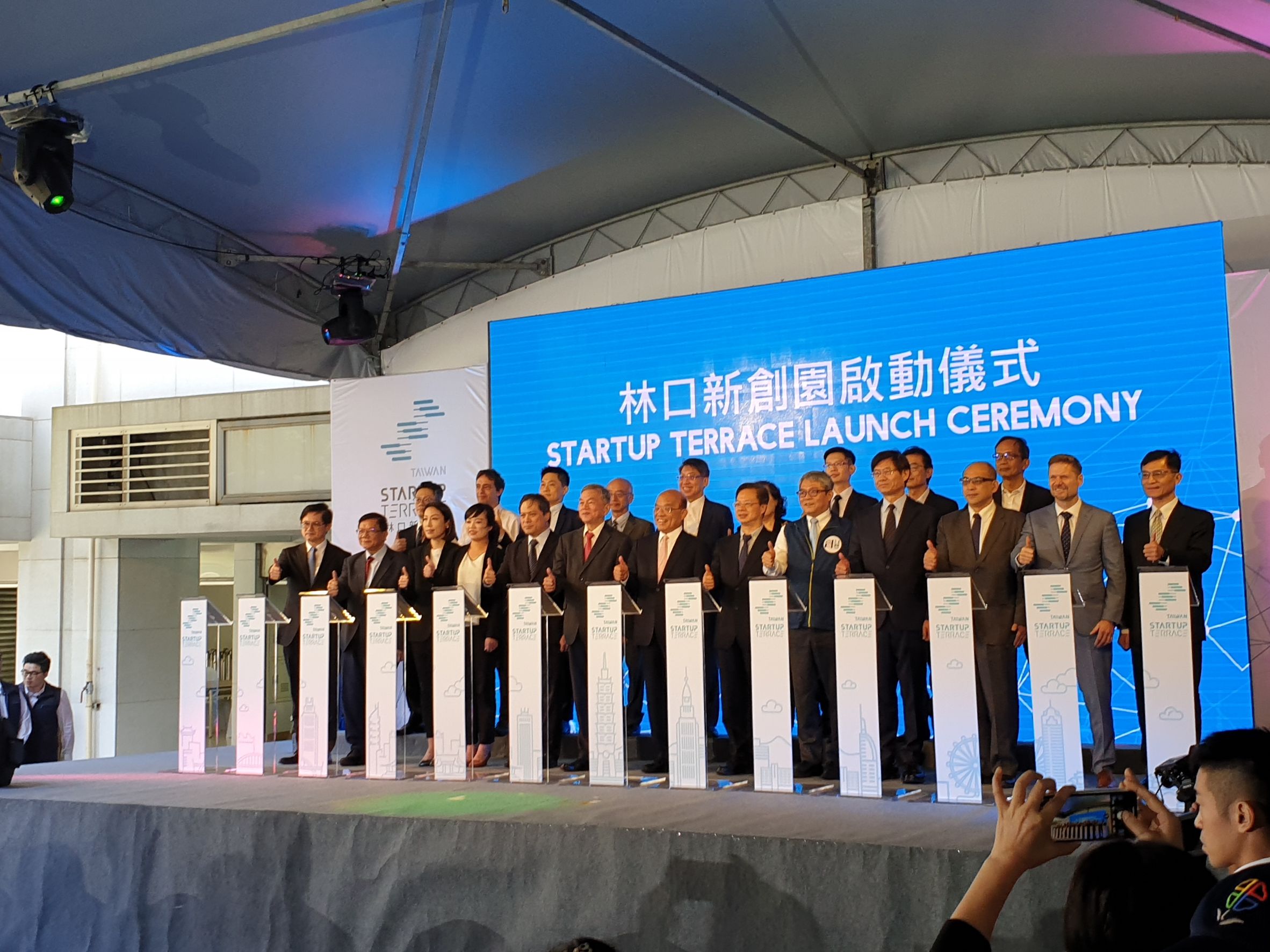
 First of all, the deputy mayor of New Taipei City Ming-Ji Wu mentioned that about 23% of Taiwan’s manufacturing industry is concentrated in New Taipei City, which is a veritable manufacturing town. In addition, in terms of startup, the New Taipei City Government has tried their best to promote various projects, in addition to the establishment of the first startup accelerator created by the local government, “Innosquare”, integrating of resources across the bureau, and linking with Startup Terrace. Hoping to attract international startup teams through the above advantages, also improve the local development.
First of all, the deputy mayor of New Taipei City Ming-Ji Wu mentioned that about 23% of Taiwan’s manufacturing industry is concentrated in New Taipei City, which is a veritable manufacturing town. In addition, in terms of startup, the New Taipei City Government has tried their best to promote various projects, in addition to the establishment of the first startup accelerator created by the local government, “Innosquare”, integrating of resources across the bureau, and linking with Startup Terrace. Hoping to attract international startup teams through the above advantages, also improve the local development.

 President of the Executive Yuan Mr. Tseng-Chang Su said that the Executive Yuan is committed to creating a more favorable startup environment through policies such as “Digital Country, Innovative Economy” and “Optimizing New Investment Action Plan”, and also create the financial supervision sandbox to allow entrepreneurs have more way to achieve their goal. He also mentioned that through the integration of national resources, connecting with various ministries, it has already successfully integrated youth entrepreneurship into social housing and became an international new cluster. But this is just the beginning. The “Startup Corridor” will be the ultimate goal. Through the transformation and upgrading of small and medium-sized enterprises, Startup Terrace will be linked with Asia Silicon Valley, ITRI and Taipei Arena. Hoping can encourage more international startups to Taiwan and drives Taiwan’s industrial transformation with innovative energy.
President of the Executive Yuan Mr. Tseng-Chang Su said that the Executive Yuan is committed to creating a more favorable startup environment through policies such as “Digital Country, Innovative Economy” and “Optimizing New Investment Action Plan”, and also create the financial supervision sandbox to allow entrepreneurs have more way to achieve their goal. He also mentioned that through the integration of national resources, connecting with various ministries, it has already successfully integrated youth entrepreneurship into social housing and became an international new cluster. But this is just the beginning. The “Startup Corridor” will be the ultimate goal. Through the transformation and upgrading of small and medium-sized enterprises, Startup Terrace will be linked with Asia Silicon Valley, ITRI and Taipei Arena. Hoping can encourage more international startups to Taiwan and drives Taiwan’s industrial transformation with innovative energy.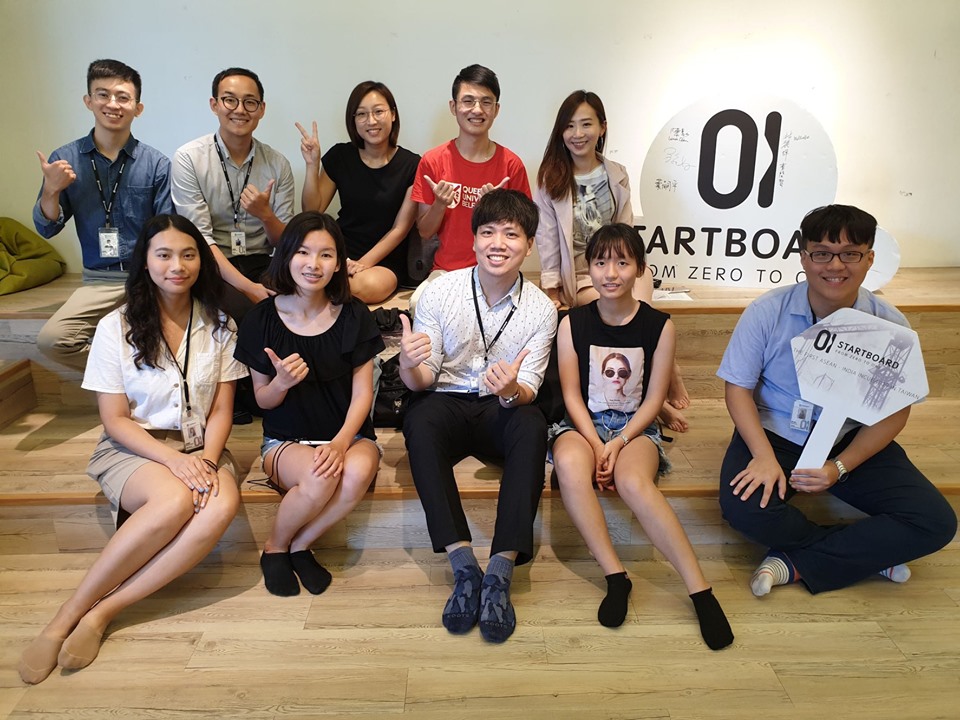
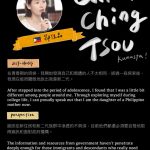
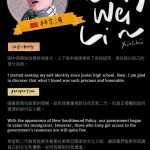
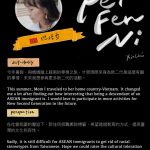
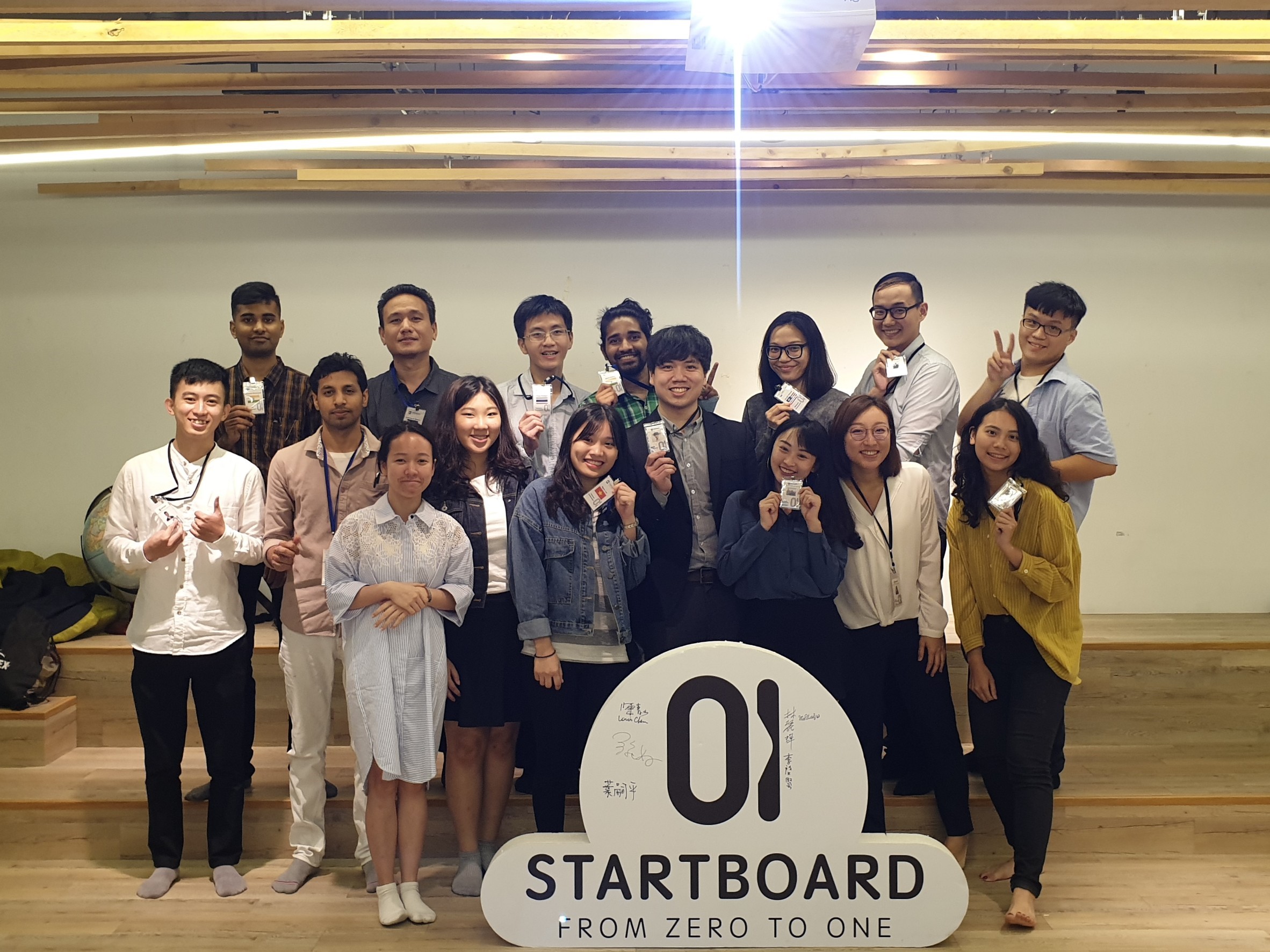
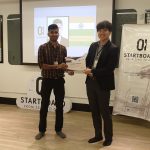

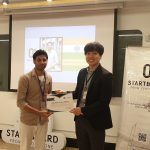
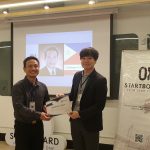
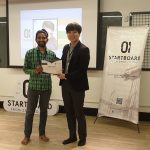
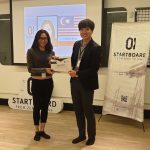
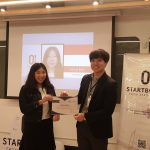
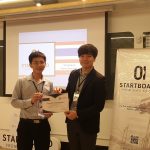
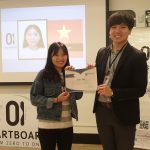

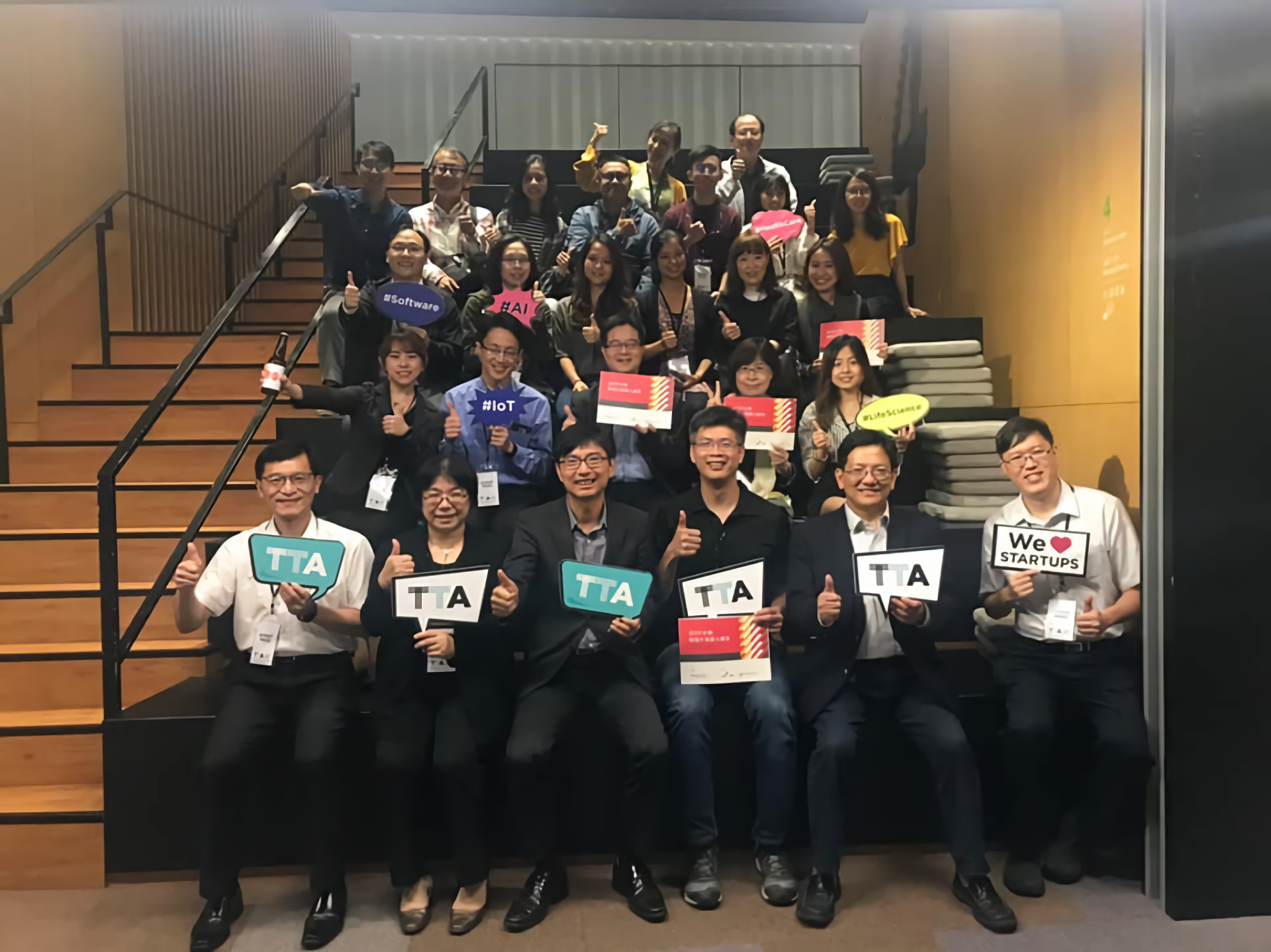



 Dr. Jan mentioned that the purpose of this event was not only to integrate the resources of various ministries but more importantly, the connection of people. In this venue, there are lots of startup teams, media, startup hubs and government departments from various fields and industries. This was a fascinating opportunity to meet with those elites surrounding you and having further discussions with them. You may have a better understanding of your strengths and weaknesses, and even find a partnership opportunity with other attendees. At the end of the speech, Dr. Zhan encouraged everyone to expand their networking by starting a conversation with at least three people and answering to more than three questions.
Dr. Jan mentioned that the purpose of this event was not only to integrate the resources of various ministries but more importantly, the connection of people. In this venue, there are lots of startup teams, media, startup hubs and government departments from various fields and industries. This was a fascinating opportunity to meet with those elites surrounding you and having further discussions with them. You may have a better understanding of your strengths and weaknesses, and even find a partnership opportunity with other attendees. At the end of the speech, Dr. Zhan encouraged everyone to expand their networking by starting a conversation with at least three people and answering to more than three questions.
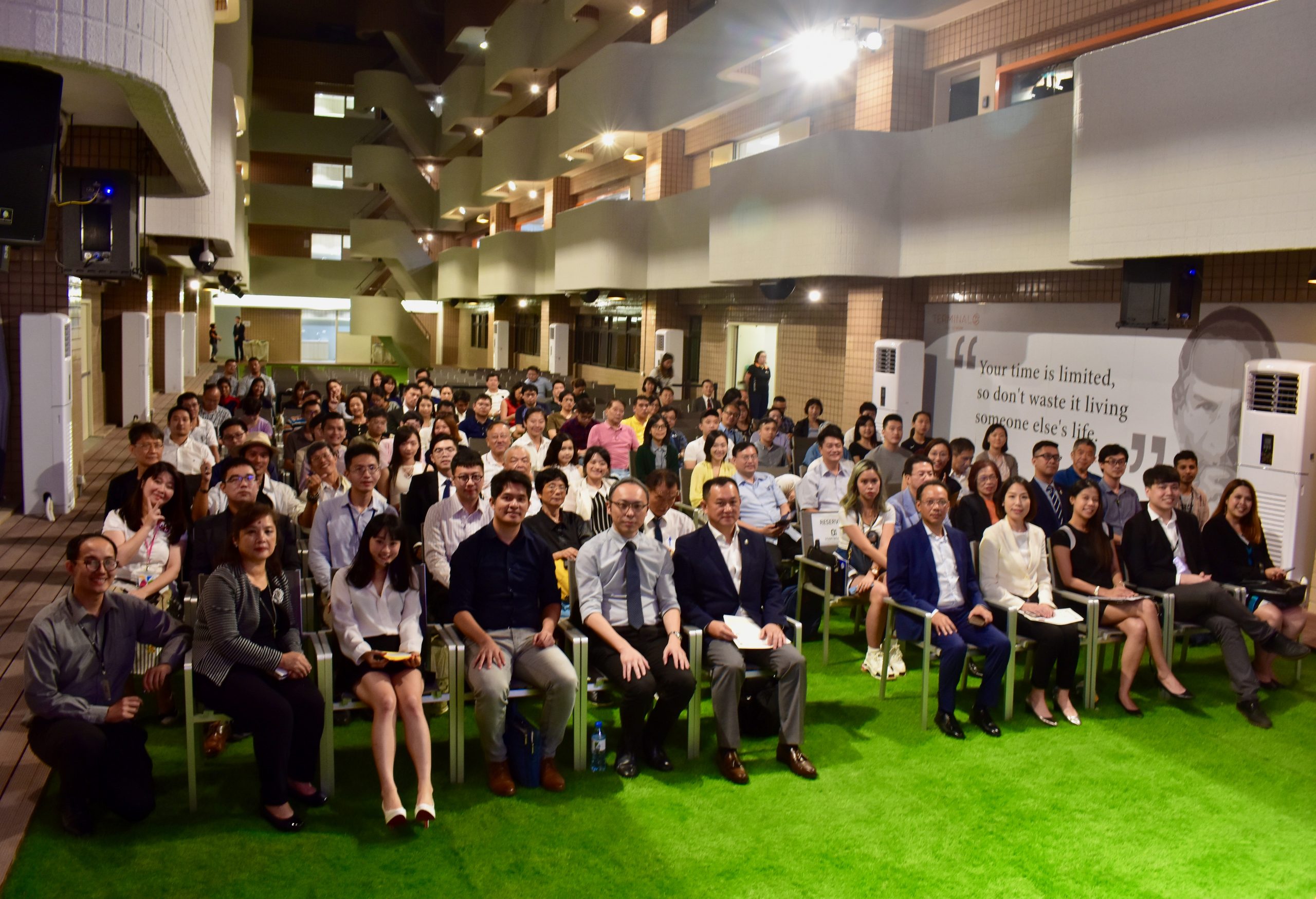













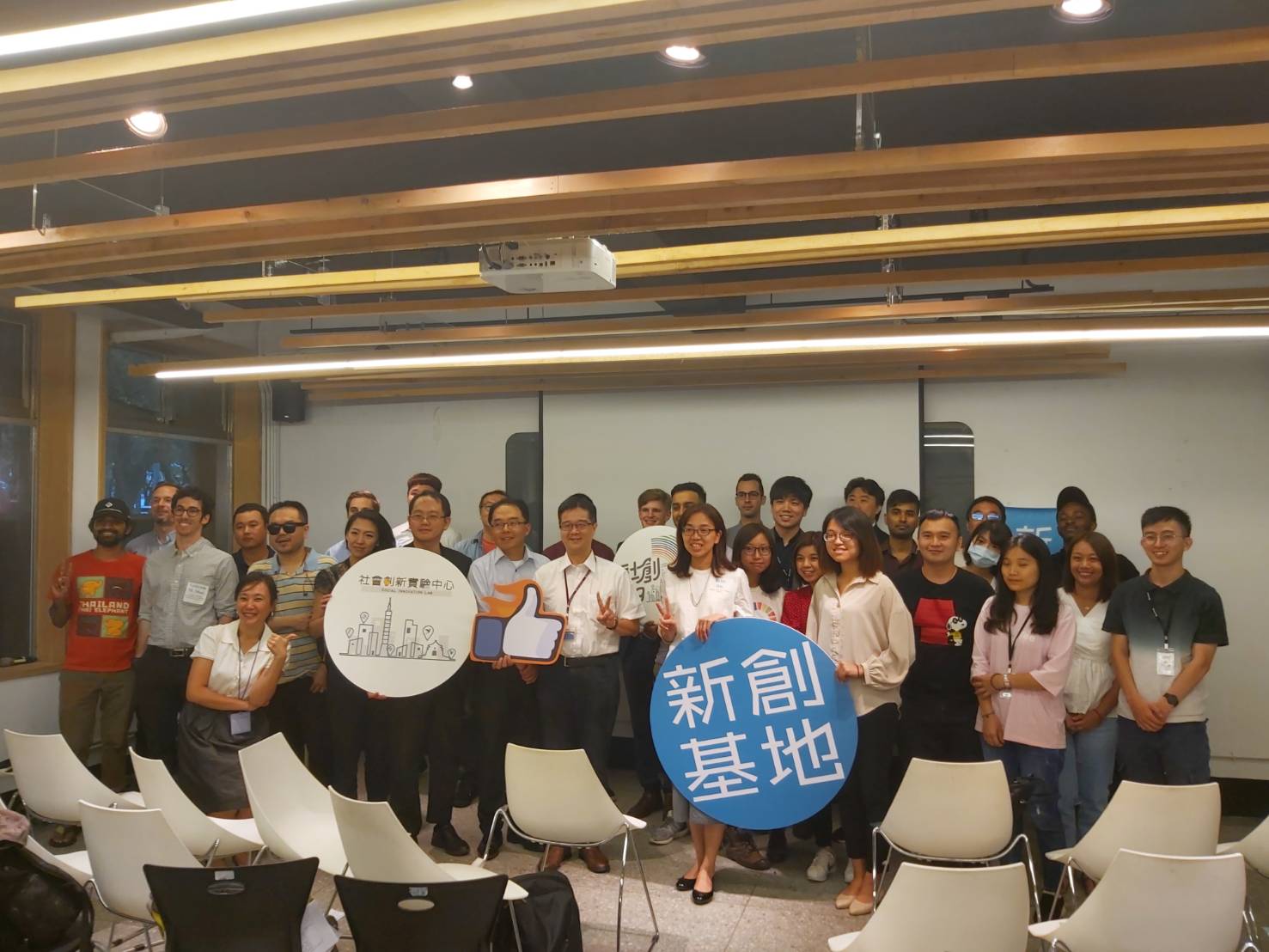
 Betty Hu, Deputy Director-General of SMEA, was delighted to see those entrepreneurs with passion and talents gather together in this meetup. Meanwhile, she announced the grand opening of Startup Terrace will be officially held in September. Besides, she talked about the top-notch startup ecosystem in Linkou area and its modern facilities which support international entrepreneurs to safely land their business in Taiwan.
Betty Hu, Deputy Director-General of SMEA, was delighted to see those entrepreneurs with passion and talents gather together in this meetup. Meanwhile, she announced the grand opening of Startup Terrace will be officially held in September. Besides, she talked about the top-notch startup ecosystem in Linkou area and its modern facilities which support international entrepreneurs to safely land their business in Taiwan. Brandon Hsu, Country Manager of Regus Taiwan, quoted that there are only 46% of employees working near their residencies. The commute is leashing the efficiency of work and time-consuming. Working at home creates other problems because home is not a professional working environment. Also, working at home has many disadvantages like the distractions, work-life mixups and so forth. Regus spotted the enormous demand of the flexible working space. Regus provides satellite offices for businessmen to work in their co-working space. By building co-working space all over the world, Regus does not only offer alternative office space for its members but also provides geographic-advantage and flexible working space. The new trend of co-working space is taking down the wall of conventional offices, facilitating communication among different industries and broadening the horizon of business.
Brandon Hsu, Country Manager of Regus Taiwan, quoted that there are only 46% of employees working near their residencies. The commute is leashing the efficiency of work and time-consuming. Working at home creates other problems because home is not a professional working environment. Also, working at home has many disadvantages like the distractions, work-life mixups and so forth. Regus spotted the enormous demand of the flexible working space. Regus provides satellite offices for businessmen to work in their co-working space. By building co-working space all over the world, Regus does not only offer alternative office space for its members but also provides geographic-advantage and flexible working space. The new trend of co-working space is taking down the wall of conventional offices, facilitating communication among different industries and broadening the horizon of business.  Mr. Goller is the senior manager of Market Entry Service at German Trade Office Taipei. The mission of the office is to improve the business cooperation between Taiwan and Germany by providing professional legal services, financial consulting services, and other support for Taiwanese startups to expand their business in Germany. Mr. Goller said there are about twenty Taiwanese enterprises in Germany. Gogoro is a good example. It has noticed the automobile is the leading industry in Germany and drives the innovation of engine design and manufacture. Gogoro wanted to collaborate with the unique automotive supply chain in Germany to boost its electric scooter engine to the next level. Therefore, Gogoro decided to choose Germany as their first destination in the European market.
Mr. Goller is the senior manager of Market Entry Service at German Trade Office Taipei. The mission of the office is to improve the business cooperation between Taiwan and Germany by providing professional legal services, financial consulting services, and other support for Taiwanese startups to expand their business in Germany. Mr. Goller said there are about twenty Taiwanese enterprises in Germany. Gogoro is a good example. It has noticed the automobile is the leading industry in Germany and drives the innovation of engine design and manufacture. Gogoro wanted to collaborate with the unique automotive supply chain in Germany to boost its electric scooter engine to the next level. Therefore, Gogoro decided to choose Germany as their first destination in the European market. Uniform Lin, COO of STARTBOARD ASEAN-Indian Startup Incubator, indicated the potential of ASEAN-Indian talents in Taiwan. He mentioned that the number of South-East Asian talents in Taiwan has increased from thirty thousand to sixty thousand since 2015. Well-educated professionals are seeking for a better connection with the integrated high-tech supply chain in Taiwan. Staying in Taiwan is their first step to open the grand Chinese market. When it comes to “international markets,” many people only think about the U.S.A and Europe; however, Venture Capitals gradually shift their capitals to fast-growing markets like South-East Asia and India. Mr. Lin said, “There are three things VCs looking for in a startup. First, courage and confidence are the fuel to overcome the struggles in entrepreneurship and help you through the obstacles with agility. Secondly, the balance of bold ambition and practical strategy is important. You have to be keen on the new trend and carefully set forth your plan both financially and strategically. At last, business reputation and credibility is the baseline. There is nearly no VC would make an investment on startups which have a dishonest or unethical history.”
Uniform Lin, COO of STARTBOARD ASEAN-Indian Startup Incubator, indicated the potential of ASEAN-Indian talents in Taiwan. He mentioned that the number of South-East Asian talents in Taiwan has increased from thirty thousand to sixty thousand since 2015. Well-educated professionals are seeking for a better connection with the integrated high-tech supply chain in Taiwan. Staying in Taiwan is their first step to open the grand Chinese market. When it comes to “international markets,” many people only think about the U.S.A and Europe; however, Venture Capitals gradually shift their capitals to fast-growing markets like South-East Asia and India. Mr. Lin said, “There are three things VCs looking for in a startup. First, courage and confidence are the fuel to overcome the struggles in entrepreneurship and help you through the obstacles with agility. Secondly, the balance of bold ambition and practical strategy is important. You have to be keen on the new trend and carefully set forth your plan both financially and strategically. At last, business reputation and credibility is the baseline. There is nearly no VC would make an investment on startups which have a dishonest or unethical history.”


